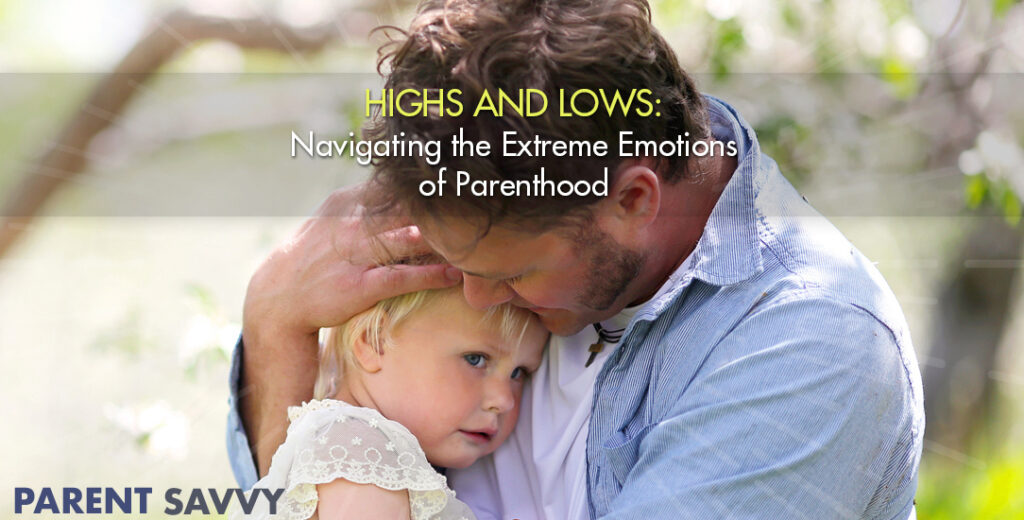
There’s this stage when toddlers shift between the extreme emotions of parenthood, joy and rage with alarming swiftness, leaving parents behind in a daze of confusion.
For most kids it seems to occur around eighteen months. I remember years ago hanging out with my sister-in-law and toddler niece, watching my niece erupt into tears and just as quickly light up with smiles.
“She experiences every emotion in the span of a few minutes,” my sister-in-law commented dryly, clearly not amused.
My youngest son is in that stage right now–where the exact same experience will elicit two separate reactions from him. I’ll be trying to get him dressed and he’ll wriggle from my grasp, red in the face, screaming his head off, and then just as abruptly he’ll sink into my lap and giggle at me.
I stare at him like he’s psychotic, and while I’m struggling to track his emotions he scurries off naked, out of my reach.
But it’s no surprise that toddlers experience extreme emotions. What’s more surprising is how early parenthood brings its own set of extreme emotions for parents. And I don’t mean just the black hole of anger and irritation that can come in pregnancy or postpartum months when hormones are erratic at best. Those early years in general can bring intense frustration coupled with immense wonder and awe.
It’s something my husband and I talk about sometimes–how we knew parenting would be taxing physically, but the emotional work is far harder. The emotional work of trying to stay patient, of trying not to lose your cool, of trying to savor moments you know will disappear. In other words–to be a parent who is really present.
While our emotions don’t shift as abruptly as toddlers, becoming a parent does usher you into a new emotional landscape, where everything can feel a bit sharper, clearer, everything you saw before now colored with more significance. And that significance can bring stronger emotions.
Calming the extreme emotions
When I’m caught in a particularly difficult day and frustration or anger simmers just under the surface, I’ve been trying to remind myself to take a bird’s eye view. Everything feels so immediate and urgent when the kids are so young. The house is never quiet and never clean and it can fray your nerves. I imagine myself in the future, disconnected from the present I’m in, and I gain a broader perspective of whatever is driving me crazy. It can lessen the frustration and remind me of how transient reactions actually are.
The other thing I’ve noticed is how important acceptance is when dealing with emotional shifts. Sometimes it works to force yourself to stop feeling a certain way. But other times, naming the emotion and accepting it is the only way to relax about it.
This always makes me think of a Chinese finger trap and how the harder you try to escape it, the more it will tangle in your fingers. However, if you relax your fingers and lean into the trap, the tension will fall away.
Leaning into the emotional tumult seems to work for toddlers. Maybe it can work for parents too mitigate the extreme emotions of parenthood.
